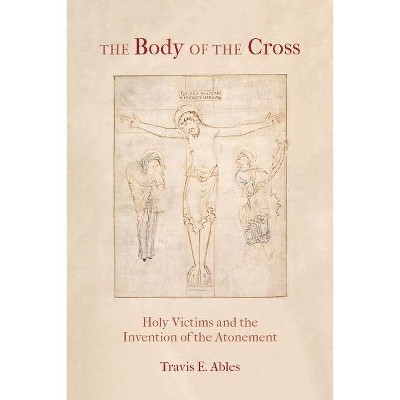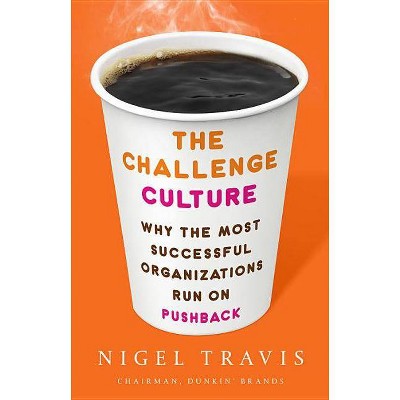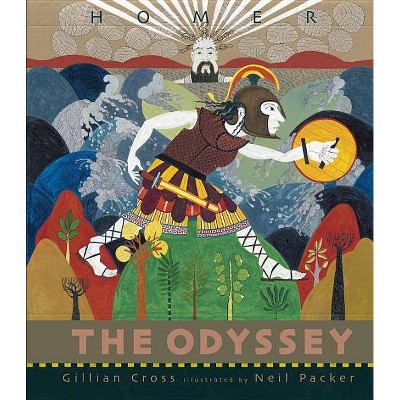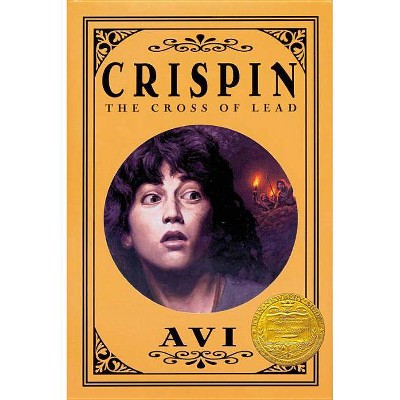The Body of the Cross - by Travis E Ables (Hardcover)

Similar Products
Products of same category from the store
AllProduct info
<p/><br></br><p><b> About the Book </b></p></br></br>"The Body of the Cross is a study of holy victims in Western Christian history and how the uses of their bodies in Christian thought led to the idea of the cross as a substitutionary sacrifice. Since its first centuries, Christianity has traded on the suffering of victims-martyrs, mystics, and heretics-as substitutes for the Christian social body. These victims secured holiness, either by their own sacred power or by their reprobation and rejection. Just as their bodies were mediated in eucharistic, social, and Christological ways, so too did the flesh of Jesus Christ become one of those holy substitutes. But it was only late in Western history that he took on the function of the exemplary victim. In tracing the story of this embodied development, The Body of the Cross gives special attention to popular spirituality, religious dissent, and the writing of women throughout Christian history. It examines the symbol of the cross as it functions in key moments throughout this history, including the parting of the ways of Judaism and Christianity, the gnostic debates, martyr traditions, and medieval affective devotion and heresy. Finally, in a Reformation era haunted by divine wrath, these themes concentrated in the unique concept that Jesus Christ died on the cross to absorb divine punishment for sin: a holy body and a rejected body in one"--<p/><br></br><p><b> Book Synopsis </b></p></br></br><p><i>The Body of the Cross</i> is a study of holy victims in Western Christian history and how the uses of their bodies in Christian thought led to the idea of the cross as a substitutionary sacrifice. Since its first centuries, Christianity has traded on the suffering of victims--martyrs, mystics, and heretics--as substitutes for the Christian social body. These victims secured holiness, either by their own sacred power or by their reprobation and rejection. Just as their bodies were mediated in eucharistic, social, and Christological ways, so too did the flesh of Jesus Christ become one of those holy substitutes. But it was only late in Western history that he took on the function of the exemplary victim. <p/>In tracing the story of this embodied development, <i>The Body of the Cross</i> gives special attention to popular spirituality, religious dissent, and the writing of women throughout Christian history. It examines the symbol of the cross as it functions in key moments throughout this history, including the parting of the ways of Judaism and Christianity, the gnostic debates, martyr traditions, and medieval affective devotion and heresy. Finally, in a Reformation era haunted by divine wrath, these themes concentrated in the unique concept that Jesus Christ died on the cross to absorb divine punishment for sin: a holy body and a rejected body in one.</p><p/><br></br><p><b> Review Quotes </b></p></br></br><br><i>The Body of the Cross</i> represents a major rethinking of a most important topic. I find it stunning in its exposure of what the 'Tradition' has excluded. This is no 'grand narrative, ' yet it possesses the heft and sweep (against the grain) of such work. Scholars, university and divinity school professors, and doctoral students will find this book immensely helpful.<b>---M. Shawn Copeland, Professor of Theology Emerita, Boston College, <i></i></b><br><br>In <i>The Body of the Cross</i>, Travis Ables explores the concrete ways in which the notion that Christ served as a substitute for believers--the "logic of vicarity"--emerged in popular devotion and practice, revealing that the idea of Christ as the ultimate "holy victim" at the center of penal substitutionary thought emerges only late in the day. In doing so, Ables reveals the complex ways in which Christians came to terms with the meaning of death and resurrection for their faith. It will undoubtedly serve to engender further innovative discussions on this crucial aspect of Christian theology, life, and practice.<b>---Cynthia Crysdale, Professor Emerita of Christian Ethics and Theology, University of the South, <i></i></b><br><p/><br></br><p><b> About the Author </b></p></br></br><b>Travis E. Ables </b>(PhD, Vanderbilt) is affiliate faculty at Regis University. He has previously taught at Vanderbilt Divinity School and Eden Theological Seminary and has served as managing editor of the <i>Anglican Theological Review</i>. He is also the author of<i> Incarnational Realism: Trinity and the Spirit in Augustine and Barth</i> (2013).
Price History
Price Archive shows prices from various stores, lets you see history and find the cheapest. There is no actual sale on the website. For all support, inquiry and suggestion messagescommunication@pricearchive.us




















